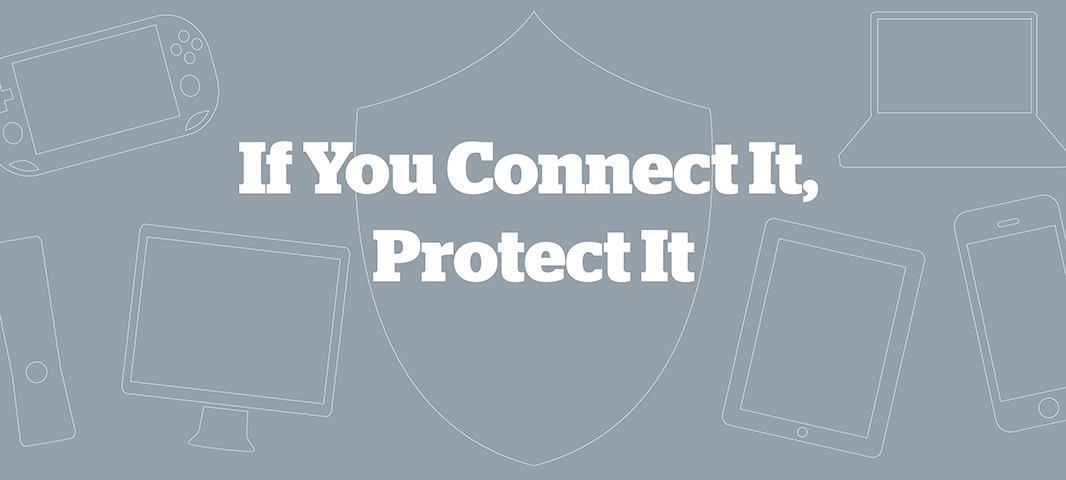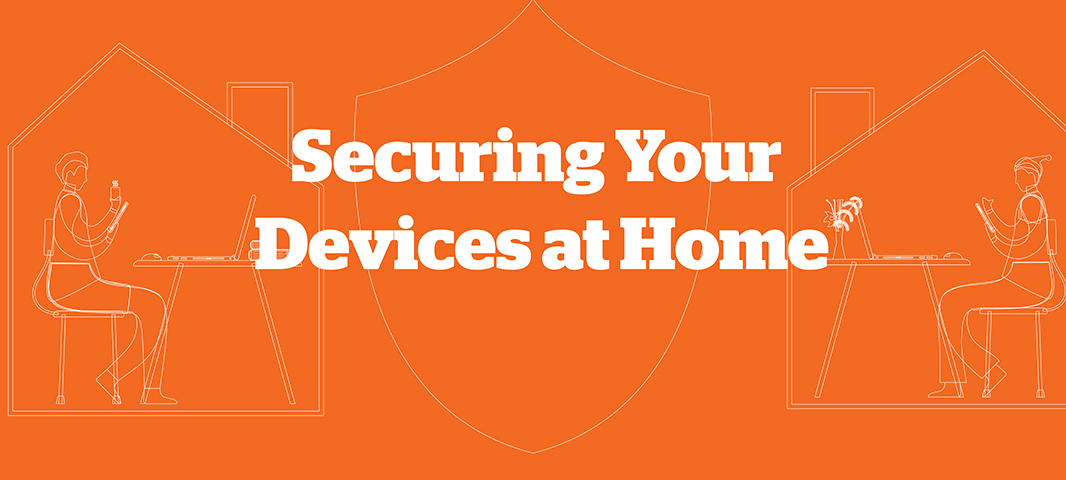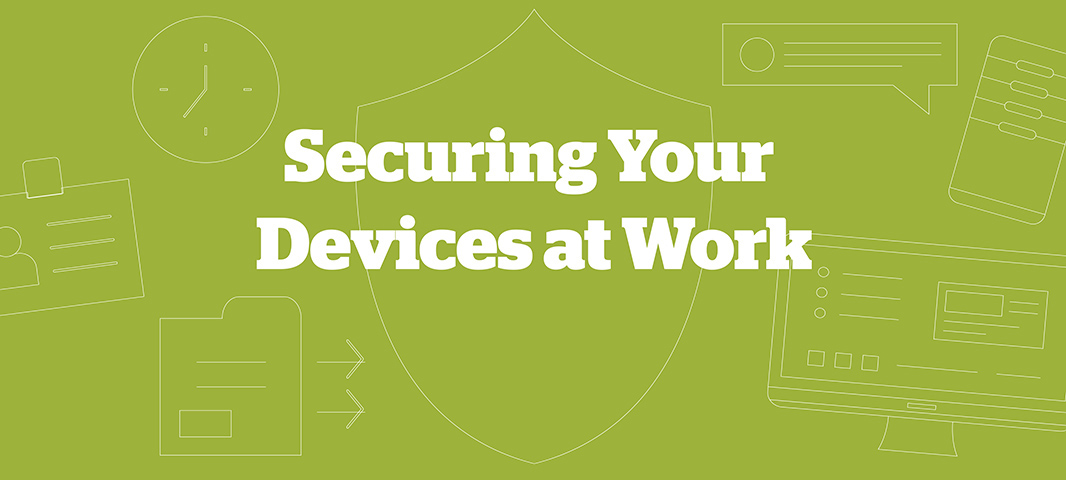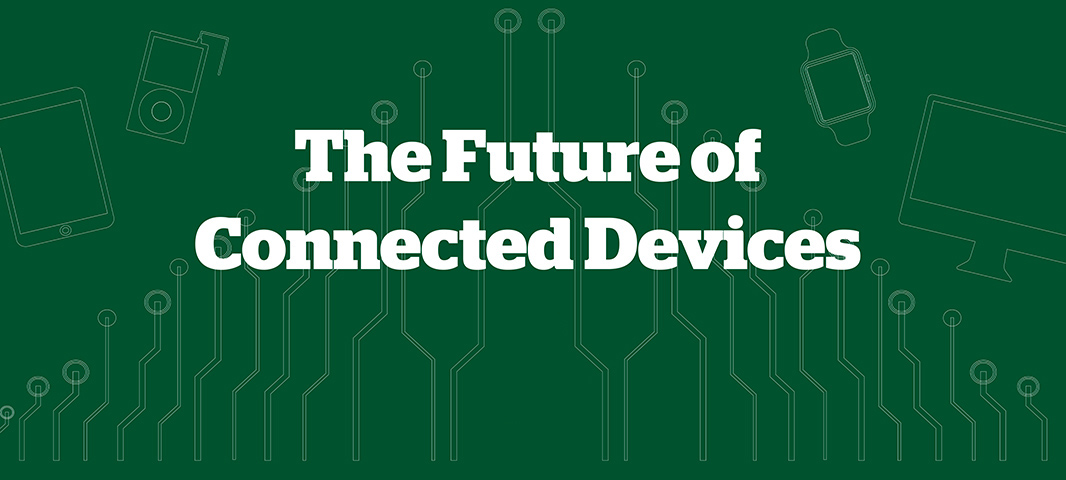
Whether you're on the go—or on the couch—if you connect it, do your part to protect yourself and your data.
Back to Top
Featured Topics

Whether you're on the go—or on the couch—if you connect it, do your part to protect yourself and your data.

As staying at home becomes the new norm, here's how to secure your home network and personal devices.

When connecting to the University to access data and resources, make sure your devices are ready to safely connect.

The future brings greater technological innovations, but also larger attack surfaces. Everyone must do their part to stay secure.
Back to Top
Before You...
Connecting to the Internet has expanded to every aspect of our lives—from collaborating with peers and colleagues to communicating with friends and family. As more applications and software are made available and accessible online, the Internet has even made it possible to successfully work and learn remotely. However, a remote lifestyle comes with its own set of security risks. How can you make sure that you are connecting to the University securely when off-campus?
Social media use has been on the rise for decades. We frequently share important moments of our lives by sharing and posting pictures of our families, outings, and milestones. Unfortunately, widespread use of social media makes it an attractive platform for exploitation and misuse of our personal information.
Phishing attacks can come from unexpected sources, like fake spam phone calls and emails, to solicit personal information by posing as a trustworthy organization or federal agency. It is important to be able to recognize a phishing attack to protect yourself against identity theft.
Using a strong password to log in to your device or your online account is your first line of defense to protect your data. Here are some tips for developing and managing strong passwords for your accounts, and why multi-factor authentication (MFA) is so important for protecting your information.
Smart technology, often referred to as the Internet of Things (IoT), are embedded into devices, vehicles, and even homes. Potential security risks posed by these devices may be difficult to address without first understanding how they interconnect, and what type of data is collected, stored, and shared.
Learning about multi-factor authentication may help you better understand how it is used to safeguard your personal identity, and stop a hacker from stealing your information. Multi-factor authentication methods, such as through Duo, require the use of various credentials in order to gain access to an account.
Back to Top
Digital Safety
We live in a digitally connected world, where the use of personal devices such as smartphones, tablets, wearables, and non-University of Miami (UM) computers has become ubiquitous and part of our daily routines. While these devices offer unprecedented convenience and flexibility, they also pose significant risks to the security and integrity of UM data.
The world has undergone a massive change in 2020 due to the COVID-19 pandemic, especially in how we are now living our everyday lives. More people are working from home, children are being taught virtually, and most of us are staying in our homes during the day. As a result, people are connecting to their home network, which means it is more important than ever to regularly check and evaluate your network's security.
Social engineering is used as a way to manipulate people into divulging their personal information. The newest threat to Internet security is the rise of social networks, which give social engineers easy access to personal and sensitive information about your identity. Learn how to stay safe and recognize social engineering when it appears.
Back to Top
Email and Mobile Security
Imagine receiving a phone call from a representative claiming to be conducting research for a reputable-sounding company. The representative asks a survey of questions that seem relatively harmless such as your birth date, favorite color, your banking institution, etc. While you may think that this was a meaningless call – you may, in fact, be a victim of pretexting.
Back to Top
Protecting Your Device
Back to Top
Traveling and Holidays
Traveling with digital devices—such as laptops, cell phones, and tablets—is often necessary in order to stay connected while you are away from the office or home. With this in mind, criminals are hard at work to determine how to access and steal your personal information. Digital devices may be successfully attacked with malware and automated attack tools. As you continue to make plans for travel, the University of Miami wants to ensure that your data remains secure.